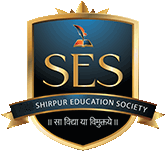Philosophy and Educational Outcomes
Vision :
To achieve excellence in engineering education with strong ethical values.
Mission :
To impart high quality Technical Education through :
- Innovative and Interactive learning process and high quality, internationally recognized instructional programs.
- Fostering a scientific temper among students by the means of a liaison with the Academia, Industries and Government.
- Preparing students from diverse backgrounds to have aptitude for research and spirit of Professionalism.
- Inculcating in students a respect for fellow human beings and responsibility towards the society.
Objectives :
- To provide world class quality and value based education with making teaching-learning interactive through ICT based and project based learning with practical applications.
- Fostering research and dissipate research findings among the students and staff for the development of the nation and community.
- To inculcate and execute innovative ideas and best practices for overall development of the institute.
- To provide conductive environment and to create studious, disciplined working environment with safety and security provisions.
- To strive hard for overall development of diversified students with promoting co-curricular and extra-curricular activities.
- To establish linkages with academia and industry for training and enhancing skills of students and staff.
- To be a catalyst for establishing a strong relationships and bonding between all stakeholders.
- To strengthen entrepreneurial skills, career counselling and placement activities to make successful professionals in diverse fields.
- To contribute to the nation by generating a pool of human resources which is employable and capable of competing globally and socially responsible.
- To motivate 'techno-social' concept by endorsing dynamic equilibrium to maintain socio-culture and ecological environment to fulfill the obligations of the society and the nation at large.
Program Outcomes :
Engineering Graduates will be able to
- PO1. Engineering knowledge: Apply the knowledge of mathematics, science, engineering fundamentals, and an engineering specialization to the solution of complex engineering problems.
- PO2. Problem analysis: Identify, formulate, review research literature and analyze complex engineering problems reaching substantiated conclusions using first principles of mathematics natural sciences and engineering sciences.
- PO3. Design/development of solutions: Design solutions for complex engineering problems and design system components or processes that meet the specified need with appropriate consideration for the public health and safety, and the cultural, societal and environmental considerations.
- PO4. Conduct investigations of complex problems: Use research-based knowledge and research methods including design of experiments analysis and interpretation of data, and synthesis of the information to provide valid conclusions.
- PO5. Modern tool usage: Create, select and apply appropriate techniques, resources, and modern engineering and IT tools including prediction and modeling to complex engineering activities with an understanding of the limitations.
- PO6. The engineer and society: Apply reasoning informed by the background knowledge to assess societal, health, safety, legal and cultural issues and the consequent responsibilities relevant to the professional engineering practice.
- PO7. Environment and sustainability: Understand the impact of the professional engineering solutions in societal and environmental contexts, and demonstrate the knowledge of, and need for sustainable development.
- PO8. Ethics: Apply ethical principles and commit to professional ethics and responsibilities and norms of the engineering practice.
- PO9. Individual and team work: Function effectively as an individual, and as a member or leader in diverse teams, and in multidisciplinary settings.
- PO10. Communication: Communicate effectively on complex engineering activities with the engineering community and with society at large, such as, being able to comprehend and write effective reports and design documentation, make effective presentations, and give and receive clear instructions.
- PO11. Project management and finance: Demonstrate knowledge and understanding of the engineering and management principles and apply these to one’s own work, as a member and leader in a team, to manage projects and in multidisciplinary environments.
- PO12. Life-long learning: Recognize the need for, and have the preparation and ability to engage in independent and life-long learning in the broadest context of technological change.
Program Specific Outcomes (PSOs) :
Students should be able to
- PSO1. Engineering knowledge: Apply the knowledge of mathematics, science, engineering fundamentals, and an engineering specialization to the solution of complex engineering problems.
- PSO2. Problem analysis: Identify, formulate, review research literature and analyze complex engineering problems reaching substantiated conclusions using first principles of mathematics natural sciences and engineering sciences.
- PSO3. Design/development of solutions: Design solutions for complex engineering problems and design system components or processes that meet the specified need with appropriate consideration for the public health and safety, and the cultural, societal and environmental considerations.
- PSO4. Conduct investigations of complex problems: Use research-based knowledge and research methods including design of experiments analysis and interpretation of data, and synthesis of the information to provide valid conclusions.
